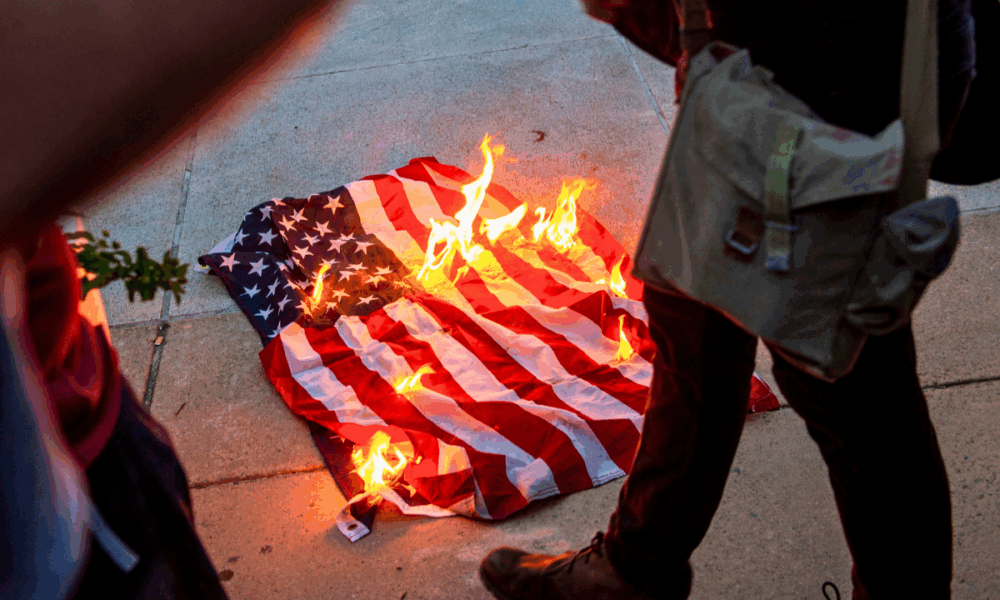President Donald Trump signed an executive order on Monday directing federal prosecutors to aggressively pursue flag desecration cases and potentially revoke visas from foreign nationals who burn the American flag.
The order instructs the Attorney General to “vigorously prosecute” flag desecration violations and seek litigation to clarify First Amendment boundaries in this area.
The move revives a decades-old debate over whether flag burning constitutes protected speech. While the Supreme Court ruled flag desecration is protected expression in 1989 in Texas v. Johnson, Trump’s order targets cases involving incitement or violence.
Under the directive, the State Department and Department of Homeland Security can deny visas, revoke residence permits, or pursue deportation of foreign nationals who desecrate the flag “wherever there has been an appropriate determination” that existing law permits such actions. The Attorney General will also refer state and local flag desecration cases to appropriate authorities.
The White House cited June 2025 protests in Los Angeles, where flag burning allegedly occurred “alongside violent acts and other conduct threatening public safety.”
Trump has previously called flag burning “disgraceful” and championed various patriotic initiatives. His administration banned flying non-U.S. flags at State Department facilities worldwide and launched the America 250 Commission to celebrate the nation’s upcoming semiquincentennial.
The order claims the Supreme Court “has never held that flag desecration conducted in a manner that is likely to incite imminent lawless action or serve as a form of ‘fighting words’ is constitutionally protected.” This appears to target flag burning during protests that turn violent.
Critics will likely challenge the order’s constitutionality, given established precedent protecting symbolic speech. The directive’s focus on foreign nationals and violence-adjacent flag burning may represent an attempt to navigate those legal constraints.


